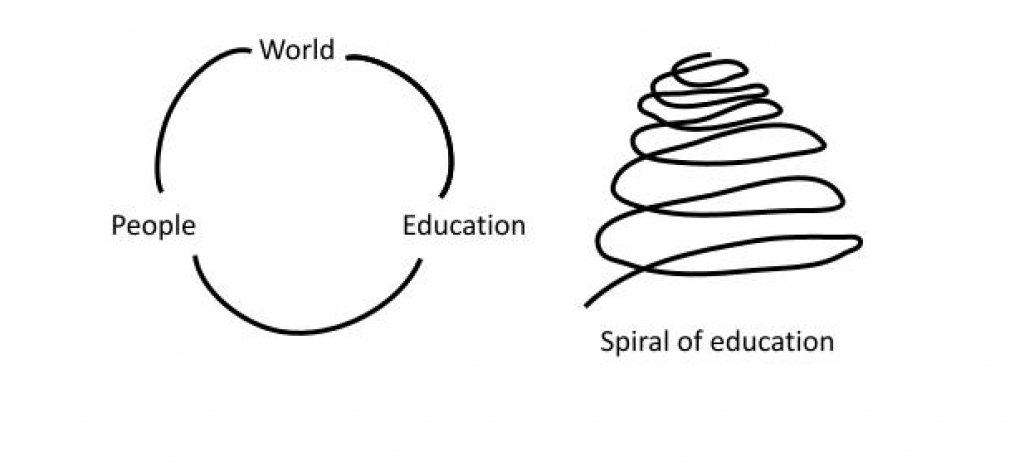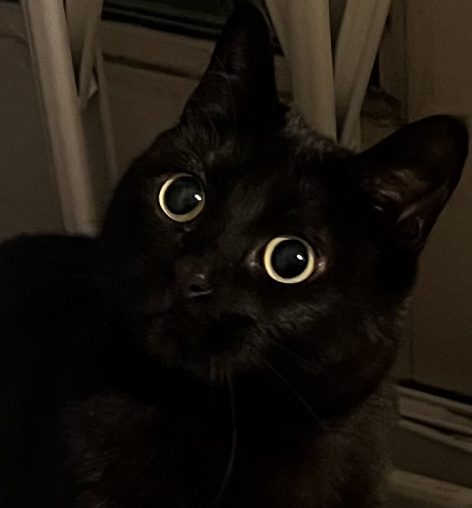The second workshop of the TPP unit focused on aims of education. I wanted to focus on three aphorisms which were proposed during the session which I wanted to assess in relation to my own aims of education, whether that is as an educator or someone being educated.
The classroom remains the most radical space of possibility in the academy.
bell hooks
Although a great admirer of hooks, I don’t fully agree with this statement. Prompted by the discussion in the workshop, there is a more expanded notion of the classroom where radical thoughts and actions can happen. I would argue that support services such as disability services, libraries (where I am located) or academic support can provide this possibility of radicalism by providing access to tools to lift and empower students, providing them with autonomy over their own learning experience.
hooks’ use of the word ‘radical’ implies a counter to the status quo or a rejection of authority whilst the use of the word ‘possibility’ suggests a dynamic space; I question whether the classroom would still be considered a radical space in a neoliberal higher education climate where knowledge and learning is subjected to the restraints and influence of a “silent but active policy that both covers up explicitly articulated politics and implements them in everyday real life” (Gielen, P. and De Bryne, P., 2012, p.4). My experience of working in higher education for the last 8 years is not one of radical possibility; rather, the restrictions of universities operating as a business and situating students as customers creates an environment where education is consumed rather than a space that encourages generative action.
Education does not change the world. Education changes people. People change the world.
Paulo Freire
Freire’s quote doesn’t situate itself within a specific education environment and I envisioned his statement as a circular and continuous spiral model of education. I interpreted the quote as advocating for life-long education and as a symbiotic experience in which learning (in whatever form that takes, such as formal or informal education) empowers the individual and through that empowerment, changes society. This resonates with me as seeing the aims of education as equipping people with the tools and strategies of learning.

The learning process is something you can incite, literally incite, like a riot.
Audre Lorde
Lorde’s quote speaks to breaking down the formal learning process and like Freire’s quote, does not situate itself in a higher education setting. The learning process which Lorde evokes is one of empowerment, autonomy and disruption.
Out of all the quotes, this is the aim of education which I would most like to achieve in terms of being an educator. For me, equipping the students with the tools, methods and strategies to research and critically engage with writers and ideas are skills which extend beyond the time they spend in university and can incite a life-long learning process.
(493 words)
Reference list
Freire, P. (2014) Pedagogy of the oppressed. New York, New York: Bloomsbury.
Gielen, P. and De Bruyne, P. (2012) ‘Introduction: the catering regime’ in Gielen, P. and De Bruyne, P. (eds.) Teaching art in the neoliberal realm: realism versus cynicism. Amsterdam: Valiz.
hooks, b. (1994) Teaching to transgress: education as the practice of freedom. London: Routledge.
Lorde, A. (2007) ‘An interview: Audre Lorde and Adrienne Rich’ in Sister Outsider. Berkeley, California: Crossing Press. 2007.
Image references
Love, R. (2025) Visual Model of Education. [Diagram]. Author’s own image.
Proudly powered by WordPress

Leave a Reply